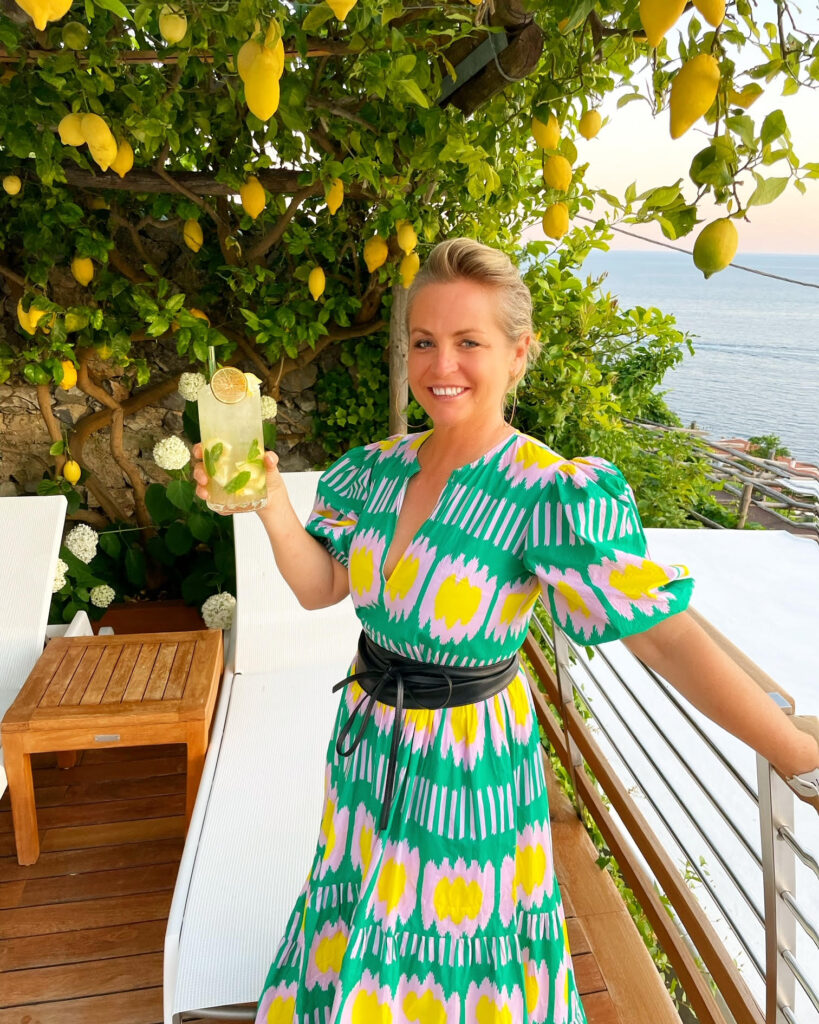“It falls on all of us as consumers-of-the-present to be ever diligent. If we want to fast track this evolution, send the dinosaurs packing, and make choices easier on the next generation, we should embrace this diligence as our moral obligation.”
When you’re at a hotel, do you hang up your towels or drop them on the floor? If you’re like most people, you’ll hang them up at least once. Why? To save the planet, right? I hate to break it to you, but the whole “hang up your towels for the planet” scheme is one of the oldest examples of greenwashing. Sure, the idea had a positive impact on the environment. But the purpose was originally to save on one of the hotel industry’s biggest expenses: water.
Or how about measuring your carbon footprint? Sorry…another example of greenwashing. Carbon footprint calculators were developed in the early 2000s by none other than British Petroleum. They engaged a PR megafirm to try and find ways to differentiate their sustainability report. The result was the ingenious calculator, which was to measure YOUR emissions rather than BP’s. As with most greenwashing, the goal is to blame the consumer and shift attention away from the true environmental villains.
Both examples have been so successful, most in the sustainability field don’t even clock them as greenwashing. Yet it would behoove us to remember that wherever a company can make a dollar, they’ll find a way to do so. Greenwashing, the act of wrapping oneself in the language of sustainability when the truth likely isn’t as altruistic, is a tried-and-true approach. Companies are tapping into the growing consumer desire for better-for-you, better-for-the-planet products. While we might assume this is a new desire, it’s been around since the start of the modern environmental movement. That’s given companies prone to unethical practices plenty of runway to perfect their nefarious game.
The most basic forms of greenwashing involve not-so-clever marketing tactics, or what I call “green speak.” There’s the language of greenwashing, heavy on the jargon and unsubstantiated claims. We’ve got the use of colors and symbols to denote meaning – semiotics – like the green box or commercial with a pristine backdrop. Smarter marketing teams will build in messages of urgency, like doomism, to induce conversion.

Author John Pabon is a sustainability author, consultant, and UN advisor.
Like the Great and Powerful Oz was actually a feeble snake-oil salesman from the Midwest, so too do companies engage in vast displays of misdirection. Some inundate audiences with data, from statistics to spreadsheets, that confuse and likely bury important pieces of intelligence. Using pictures of children is a stock-standard form of misdirection. I’d like to believe consumers see right through this.
In researching The Great Greenwashing, I also discovered a form of greenwashing so shocking it made my jaw drop. This involves spending large sums of money on front groups that lobby for greenwashers. There are entire organizations that on the surface seem to be doing the right thing by the planet and for people. Scratching beneath the surface, however, it becomes clear who’s calling the shots. My favorite example is the European Institute for Climate and Energy, a media outlet that only pumps out fake climate news. They’re funded by, you guessed it, a major fossil fuel company.
As greenwashing grows, don’t hide in the shadows.
Coming out the other end of the global pandemic, sustainability professionals have noticed a massive uptick in cases of greenwashing. Some of this is accidental. With more and more companies – welcomely – joining the fight for a better future, they may overstate claims, put out faulty data, or not comply with the onerous regulatory frameworks we’re supposed to understand. That’s ok, because we can fix accidents.
Far more concerning are those companies where greenwashing is embedded within the marketing mix. I’ll forgo pointing fingers, even though you know exactly who I’m referring to. They would rather invest millions of dollars into becoming better greenwashers than spend that money improving whatever it is they do. This is nothing new as they’ve been doing it for decades. Unfortunately, consumer behavior change and education happens much slower than using the latest technology to develop slick semiotic cues.
Which brings me to the biggest threat facing those of us fighting against unethical marketing: green hushing. It’s become another buzzword in the armory of sustainability jargon, but green hushing is an insidious issue we should be taking much more seriously. Boiled down, green hushing happens when companies would rather keep quiet about their sustainability achievements than talk openly. This is a result of having claims torn apart by (mostly) those in the activist community or media looking for a gotcha moment. To be clear, no company is perfect. Eventually, someone will find something off. Now, legal teams are essentially blocking companies from sharing anything related to sustainability for fear of being labeled as greenwashing.
It’s always been a struggle getting companies to be out and proud about the amazing things they’re doing. With green hushing complicating matters, authentic conversations on sustainability are getting pushed further into the shadows. This is doing no one any favors. Which is why I always recommend being fully transparent about everything. Put all your cards on the table and there can’t be a gotcha moment. Nobody is expecting perfection. They just don’t want to be lied to.

Courtesy of Pexels.
But what of tomorrow?
This may come as a shock, but I can’t tell the future. I’m not a betting man, either. But if I did have a crystal ball, I’d put my money on the shopper experience looking very different in fifteen years’ time. If consumers today want to make the “right” choice, they have to research and likely pay a bit more at the till. This is a burden nobody is exactly enamored with, me included. It’s also the reason why we’re seeing a proliferation in greenwashing. Marketers know consumers will give up on researching, if they even start researching at all. That makes it really easy to pull the wool over our eyes.
Looking behind the curtain, I’ve seen a sizable portion of companies entering a much more virtuous cycle. While there are vast differences between industries and geographies, the general trajectory is for businesses to truly be embracing sustainable operations. I don’t mean sustainable “wink wink.” I mean a genuine blending of sustainable practices and operations with an eye towards profitability and consumer centricity. These companies know that to survive they must differentiate by being better.
Over the next decade, the gap between companies differentiating on better versus those mired in unethical and distasteful practices will widen. My hope is that capitalism will take care of the rest. The unevolved companies will die out, leaving the fittest behind. So, for our consumer of the not-too-distant future, they’ll go to the shelf and all choices will be the right ones. As sustainable competition scales, price points will also adjust and greenwashing will (finger’s crossed) become a thing of the past.
For the time being, however, it falls on all of us as consumers-of-the-present to be ever diligent. If we want to fast track this evolution, send the dinosaurs packing, and make choices easier on the next generation, we should embrace this diligence as our moral obligation. How you spend your hard-earned money today is key to building a future where greenwashing is seen as so abhorrent, so medieval, no marketer in their right mind would even consider the thought.
John Pabon is a globally recognized sustainability expert, speaker, and UN advisor. He is the author of “Sustainability for the Rest of Us: Your No-Bullshit, Five-Point Plan for Saving the Planet,” and “The Great Greenwashing: How Brands, Governments, and Influencers are Lying to You.” You can find out more at johnpabon.com or follow him on TikTok at @johnapabon.

Founder and CEO of Azure Road, Lauren Mowery is a longtime wine, food, and travel writer. Mowery continues to serve on Decanter Magazine’s 12-strong US editorial team. Prior to joining Decanter, she spent five years as the travel editor at Wine Enthusiast. Mowery has earned accolades for her writing and photography, having contributed travel, drinks, food, and sustainability content to publications like Food & Wine, Forbes, Afar, The Independent, Saveur, Hemispheres, U.S. News & World Report, SCUBA Diving, Plate, Chef & Restaurant, Hotels Above Par, AAA, Fodors.com, Lonely Planet, USA Today, Men’s Journal, and Time Out, among others.
Pursuing her Master of Wine certification, she has also been a regular wine and spirits writer for Tasting Panel, Somm Journal, VinePair, Punch, and SevenFifty Daily. Mowery is a graduate of the University of Virginia and Fordham Law School, and she completed two wine harvests in South Africa.
Follow her on Instagram @AzureRoad and TikTok @AzureRoad








